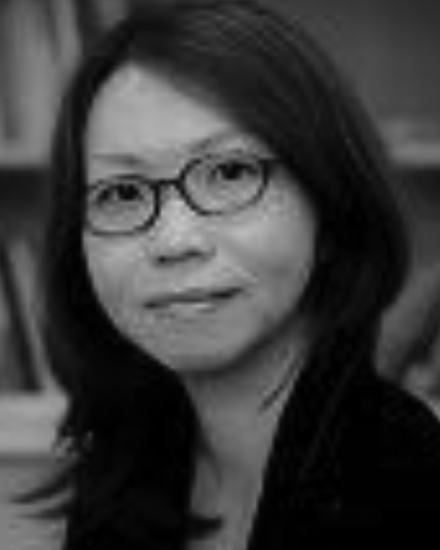Abstract:
This paper investigates the relationship between activity design and discourse on a mobile learning trail, considering the physical affordances of the real world platform...Show MoreMetadata
Abstract:
This paper investigates the relationship between activity design and discourse on a mobile learning trail, considering the physical affordances of the real world platform in designing contextual learning experiences. We adopted a context-oriented and process-oriented pedagogical approach in designing the mobile learning trail conducted at Singapore Sentosa Island. Activities were categorized into performative and knowledge-generative on a continuum from well-structured to ill-structured activities. To examine the impact of activity design on discourse types, all audio-recorded verbal data of the three groups of secondary students was analysed with respect to two key dimensions in the knowledge construction process, namely, the epistemic and the social. Analysis showed that activity types and physical affordances of the learning environment have a definitive bearing on group discursive moves. Importantly, the presence of a real world context could generate critical thinking and collaborative knowledge building even for mundane performative activities when they are embedded with unforeseen contextual variables. We argue that the design of activity and the degree of its structuredness, and the assumed desired learning outcomes, are very much subjected to the affordances of physical and social resources in the mobile learning environment-a missing dimension that could possibly be overlooked and understudied.
Published in: IEEE Transactions on Learning Technologies ( Volume: 8, Issue: 1, 01 Jan.-March 2015)
Funding Agency:

Munich Center of the Learning Sciences (MCLS), Ludwig-Maximilians-Universität, München
Geschwister-Scholl-Platz 1, München, Germany
Esther Tan received the master's degree in intercultural
education from Berlin Freie Universität. She is a doctoral student at the Munich Center of the Learning Sciences
(MCLS), Ludwig-Maximilians-Universität, München, Germany. Her research interests include in-situ knowledge
building and teacher agency and student autonomy in future learning environments. Her dissertation work investigates
the effects of differently ...Show More
Esther Tan received the master's degree in intercultural
education from Berlin Freie Universität. She is a doctoral student at the Munich Center of the Learning Sciences
(MCLS), Ludwig-Maximilians-Universität, München, Germany. Her research interests include in-situ knowledge
building and teacher agency and student autonomy in future learning environments. Her dissertation work investigates
the effects of differently ...View more

Department of Creative IT Engineering, Pohang University of Science & Technology (POSTECH), 77 Cheongam-Ro, Nam-Gu, Pohang, Gyeongbuk, Korea
Hyo-Jeong So received the PhD degree from Instructional Systems
Technology, Indiana University, 2005. She is an associate professor in the Department of Creative IT Engineering,
Pohang University of Science & Technology (POSTECH), Korea. Previously, she was an associate professor in the
Learning Sciences & Technologies Academic Group, National Institute of Education, Nanyang Technological
University, Singapore. Her re...Show More
Hyo-Jeong So received the PhD degree from Instructional Systems
Technology, Indiana University, 2005. She is an associate professor in the Department of Creative IT Engineering,
Pohang University of Science & Technology (POSTECH), Korea. Previously, she was an associate professor in the
Learning Sciences & Technologies Academic Group, National Institute of Education, Nanyang Technological
University, Singapore. Her re...View more

Munich Center of the Learning Sciences (MCLS), Ludwig-Maximilians-Universität, München
Geschwister-Scholl-Platz 1, München, Germany
Esther Tan received the master's degree in intercultural
education from Berlin Freie Universität. She is a doctoral student at the Munich Center of the Learning Sciences
(MCLS), Ludwig-Maximilians-Universität, München, Germany. Her research interests include in-situ knowledge
building and teacher agency and student autonomy in future learning environments. Her dissertation work investigates
the effects of differently sequenced classroom scripts on collaborative inquiry learning in formal and informal
science. She headed the IT Department at Shanghai Singapore International School, Shanghai, served as an education
officer in the Educational Technology Division, Ministry of Education, Singapore, and was a researcher on the
Singapore Future School Project at the Learning Sciences Lab, National Institute of Education, Singapore.
Esther Tan received the master's degree in intercultural
education from Berlin Freie Universität. She is a doctoral student at the Munich Center of the Learning Sciences
(MCLS), Ludwig-Maximilians-Universität, München, Germany. Her research interests include in-situ knowledge
building and teacher agency and student autonomy in future learning environments. Her dissertation work investigates
the effects of differently sequenced classroom scripts on collaborative inquiry learning in formal and informal
science. She headed the IT Department at Shanghai Singapore International School, Shanghai, served as an education
officer in the Educational Technology Division, Ministry of Education, Singapore, and was a researcher on the
Singapore Future School Project at the Learning Sciences Lab, National Institute of Education, Singapore.View more

Department of Creative IT Engineering, Pohang University of Science & Technology (POSTECH), 77 Cheongam-Ro, Nam-Gu, Pohang, Gyeongbuk, Korea
Hyo-Jeong So received the PhD degree from Instructional Systems
Technology, Indiana University, 2005. She is an associate professor in the Department of Creative IT Engineering,
Pohang University of Science & Technology (POSTECH), Korea. Previously, she was an associate professor in the
Learning Sciences & Technologies Academic Group, National Institute of Education, Nanyang Technological
University, Singapore. Her research interests focus on the design and evaluation of various learning technologies from
human computer interaction perspectives. She is currently the chair of the Classroom, Ubiquitous and Mobile
Technologies Enhanced Learning (CUMTEL) SIG, the Asia-Pacific Society for Computers in Education (APSCE).
Hyo-Jeong So received the PhD degree from Instructional Systems
Technology, Indiana University, 2005. She is an associate professor in the Department of Creative IT Engineering,
Pohang University of Science & Technology (POSTECH), Korea. Previously, she was an associate professor in the
Learning Sciences & Technologies Academic Group, National Institute of Education, Nanyang Technological
University, Singapore. Her research interests focus on the design and evaluation of various learning technologies from
human computer interaction perspectives. She is currently the chair of the Classroom, Ubiquitous and Mobile
Technologies Enhanced Learning (CUMTEL) SIG, the Asia-Pacific Society for Computers in Education (APSCE).View more

